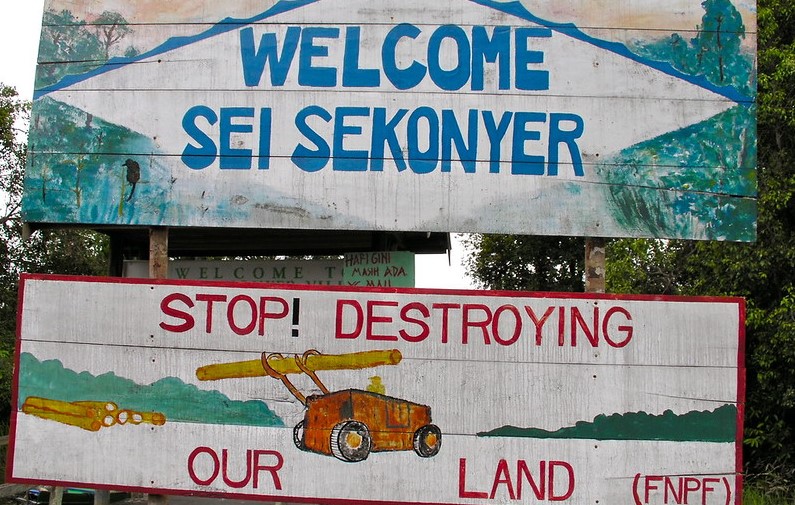By Barbara Oosters and Saskia van Veen EADI/ISS Blog Series
My (Barbara)’s fascination and interest for the issue of civic space started in Indonesia. Local organisations struggled with the introduction of a vaguely framed law for Non-Governmental Organisations (NGOs), warning them not to work on issues going against ‘’Indonesian’’ values. A few years later I found myself supporting initiatives in more than 15 countries spread across the globe, struggling with shifting and shrinking civic space. Although this is just a fraction of countries facing a reduced space to assemble, associate and speak up freely, it enabled me to learn from a variety of contexts on how people resist, adapt and reclaim civic space. To me the key to win this battle is exactly this: learn from and connect those who face similar challenges fast and on a wide scale. Our opponents are doing exactly the same. We need to become faster and smarter in connecting and learning.
The civic space you have as an individual or organization depends very much on the issue you want to address. Some battle grounds are fiercer than others. Land rights are such a hot potato, touching on the interests of many. Small farmers or indigenous communities who defend their century-old reliance on forests find themselves in front of large agriculture or extractive investment projects. Concerned that land disputes can fuel social disorder, local and national governments limit the space for civil society to assist affected communities. The more that space for people to peacefully claim their land rights is restricted, the more intense land disputes become. In 2017, Global witness recorded that globally an unprecedented number of 197 land rights defenders were killed.
How to tackle land rights in a complex environment?
In 2019 we at Oxfam Novib scoped the interest of some of our offices and partners working on land rights to document their strategies, successes and brilliant failures to remain influential in a shrinking civic space context. We also looked for Oxfam country offices facing a similar shrinking space while fighting for land rights and looking for inspirational ideas forward. Our vision: bringing them together in a unique participatory learning way in order for all parties to gain from this exchange. As an end-product we envisage a toolbox with actionable tactics that help to resist, adapt and reclaim civic space while working on land rights.
Oxfam country offices, partners and allies from Cambodia, Vietnam and Myanmar took part in this learning lab on land rights and civic space. Cambodian and Vietnamese Civil Society Organizations (CSOs) have had documented some successful outcomes of their land advocacy before, and are having a close look at the adaptive strategies that made these positive gains possible. Over the past number of years, Myanmar has been marked by shifting and shrinking civic space. How to tackle land rights in such a complex/changing environment? Indonesia was added as fourth country because of its exemplary way of bringing a diverse range of civil society together and bridge differences for a common cause.
Avoid naming and shaming
What were some of the successful approaches identified? Monitoring tools for robust land re-allocation and smart collaboration between local and national organisations and their combined strategies enabled change in one country. In another it was more a change of tactics (from confrontational to a more collaborative one) that enabled the participation of hundreds of communities and local CSOs in first ever consultation workshops on a land related law. Naming and shaming tactics were avoided as well as fights in the media. Direct feedback via closed-door meetings proofed more effective.
The need for alliances came out strongly in many aspects. Local organizations fighting for land rights are a fragmented group, with conflicting demands and needs as they all want to defend their rights. Uniting them in solidarity strengthens their common voice for change. It also builds their credibility and highlights their overall size as a force that needs to be acknowledged. Staying close to one’s constitution is also a key requisite for both success and resilience. Strong solidarity networks to mitigate risks to single organizations proved a successful and necessary tactic throughout.
The Myanmar team, together with partners, is at this moment experimenting with some interesting ways forward, as identified and listed above. The other participating country representatives are in the process of reflecting on their learnings. On the basis of this experience, we would like to encourage everyone who is struggling with land rights in a shrinking civic space context to join us on this exciting learning road to remain influential on land rights despite all odds. Many have proved that it is possible.
Barbara Oosters is Policy Advisor civil society space and strengthening at Oxfam Novib – she is supporting the learning lab on land rights and civic space from her expertise on civic space.
Saskia Veen is an Impact Measurement and Knowledge specialist at Oxfam Novib – she is supporting the learning lab in terms of methodology of documentation and learning strategy.
Image: Rainforest Action Network on flickr under a Creative Commons License
This article is part of a series launched by EADI (European Association of Development Research and Training Institutes) and the Institute of Social Studies (ISS) in preparation for the next EADI/ISS General Conference “Solidarity, Peace and Social Justice”. It will also be published on the ISS Blog.

